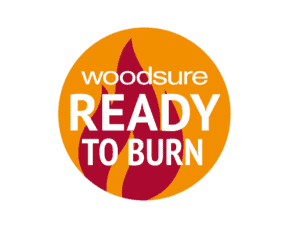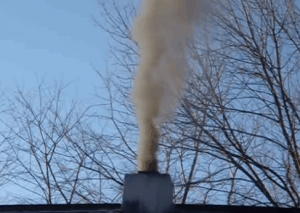 Selling wet wood could be phased out in England and Wales under government proposals. We have outlined the issues and dangers of burning wet wood in recent articles. The key issue with burning wet wood is that it produces an ineffective heat output, causes excessive pollution, and can congest a flue, which can increases the chances of a chimney fire and carbon monoxide poisoning.
Selling wet wood could be phased out in England and Wales under government proposals. We have outlined the issues and dangers of burning wet wood in recent articles. The key issue with burning wet wood is that it produces an ineffective heat output, causes excessive pollution, and can congest a flue, which can increases the chances of a chimney fire and carbon monoxide poisoning.
Wet wood is wood usually with a moisture level of over 20-25%. Some garden centres and petrol stations can sell cheap wood, which is often considered “wet” or “unseasoned”. Under potential new legislation, this type of wood could be banned. This new law could come into force as early as 2019 under DEFRA proposals.
In recent months there has been a significant focus towards cleaner air, and sadly burning wood has come under attack. Essentially some in the media have been taring all methods of burning wood with the same brush. The real offenders of inefficient wood burning are open fires, which have an efficiency of only around 20%. In contrast an Ecodesign Ready stove has an efficiency of around 80%. While some better informed journalists have provided insight into the various methods of wood burning, others have been woefully misleading – some even suggesting banning all stoves, despite the incredible high efficiency of an Ecodesign Ready model. They are failing to make the essential differentiation between the various ways to burn wood, and their corresponding environmental impacts, which is providing a disservice to the general public.
 WoodSure & Banning Wet Wood:
WoodSure & Banning Wet Wood:
We fully support the potential ban of selling wet wood. This move would perfectly co-inside with the key strategy, which underpins Ecodesign Ready stoves, in creating cleaner, more efficient ways to keep warm.
Long before this government proposal came about there is one initiative, which in all probability helped spearhead this recent crackdown, this initiative is called Ready To Burn, from Woodsure. This initiative helps people buy wood that has been certified to a specific standard in terms of ensuring it’s not wet, and is safe to use in your stove. Learn how you can check if your wood is dry.
A Potential Black Market?
The cost of wet wood is around £84 for a cubic metre, while the same amount for dry wood is £140. Due to this cost differential there is a threat of a black market emerging for wet wood, which would need to be identified and nipped in the bud, to make sure normally law-abiding citizens don’t fall foul of the law. Educating consumers about the differences between between wet and dry wood, and what they decided to burn will have an impact on air quality, will be critical to help ensure wet wood is ousted completely.
What About Coal?
 Traditional coal maybe phased out in the next 1 to 3 years under these proposals. Pollution from burning wood and coal in the home currently accounts for 38% of particulate pollution, the vast majority of this 38% quoted figure comes from inefficient open fires.
Traditional coal maybe phased out in the next 1 to 3 years under these proposals. Pollution from burning wood and coal in the home currently accounts for 38% of particulate pollution, the vast majority of this 38% quoted figure comes from inefficient open fires.
This figure is much greater than particulate pollution caused by road transport (12%) or industrial combustion (16%). Lower income households are much more likely to burn coal on an open fire, with very few having a high efficiency wood burning stove in their home. There must be due consideration made towards lower income households in helping them move away from using coal if a ban on coal is to become reality.
In conclusion it’s good to see a shift towards a cleaner way of heating. Hopefully this will further give a positive limelight for Ecodesign Ready stoves, and to further create a distinctive seperation between efficient and inefficient ways to burn wood.
All our stoves now are Ecodesign Ready. You can lean more about our stoves here.








